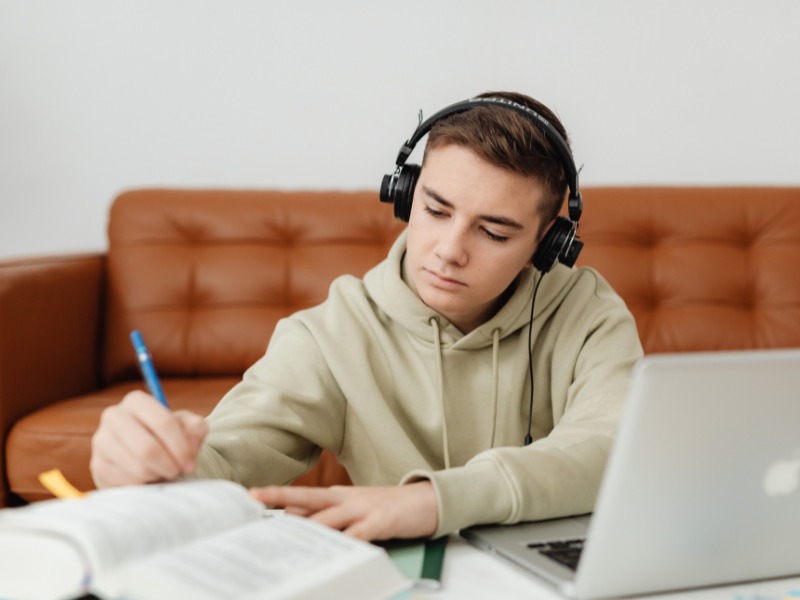Could music help improve students’ ability to learn?

As students worldwide are having educational experiences that are a little or a lot different to their “normal”, teachers are looking for ways to maintain students’ engagement in a similar way to when they are attending “normal” school.
Remote or a combination of online and face to face learning is not standard, so maybe we are doing our students a disservice by thinking about this type of learning in the same siloed way we often look at school learning. In many cases, teachers have just taken their learning experience online and may not have considered how disjointed and un-“normal” this might feel in the home environment.
This study puts forward an interesting idea about how we could “implement this technique [of playing classical music in the background] in classrooms, or in online lectures while students complete their education at home due to COVID-19 social distancing measures, so we can help college students’ re-study’ their class materials during sleep.”
Could we think about the at-home learning experience as immersive? If yes, we as teachers would need to create the learning environment – how it sounds, feels and looks – for the students. Could the music teachers collaborate with subject teachers to suggest background music that would nuance learning and most importantly, memory? Could a school develop a short playlist or suggestions for parents to play at home to motivate, calm and enthral their children in their learning?
Music teachers – if what goes in their ears can impact their memory, test scores and general learning, what piece would you add to the playlist?
BBB resources are now available in multiple languages—because every brain deserves the chance to learn music.
Melody isn’t just about pitch—it’s how we communicate emotion, intention, and meaning in music and speech alike.
What if perfect pitch isn’t a rare gift you’re born with, but a skill your brain can grow—shaped not by fate, but by how you listen, learn, and tune in over time?
Free Easter campaign download with posters and social tiles to help students understand the value of music learning.
What if you could advocate for music education without adding more work to your already packed schedule?
Engaging in musical activities offers profound benefits for our brains, enhancing various cognitive functions and emotional well-being.
While there can only be one winner of the BBB Music Teacher Award, we also recognize the outstanding efforts of our 2025 Runner-Up, Ruby Mensforth—a teacher whose dedication to fostering a love of music has left a lasting impact on her students.
Playing an instrument or singing in a choir isn’t just fun—it’s great for brain health too. A recent study found that people with musical experience have stronger memory and thinking skills than those without.
For many music teachers, March means concert season, assessment planning, and advocating for the importance of music education as budgets and schedules for next year take shape.
We know that speaking up for music in schools can feel overwhelming—but you don’t have to do it alone.
If you've ever conducted or played in an ensemble, you’ve likely felt it—that moment when everything clicks, the music soars, and your group performs at a level beyond anything you thought possible.
The World Economic Forum's Future of Jobs Report 2025 highlights the critical skills that will define the workforce of tomorrow.
A recent study in Ear and Hearing investigated how aging and hearing loss influence music perception, focusing on melody and timbre discrimination.
A new study in the Journal of Neuroscience reveals that our brains start processing rhythm as early as 27 weeks into pregnancy.
The 2025 Celebrate to Advocate Calendar is your go-to guide for making advocacy effortless this year!
A recent study from Waseda University has uncovered that when individuals listen to music, their heart rates synchronize, reflecting a unified physiological response.
A groundbreaking study in Nature Human Behaviour has revealed a fascinating genetic connection between musical rhythm skills and language-related traits, including dyslexia.
Recent research from the Georgia Institute of Technology has unveiled compelling insights into how music affects learning, memory, and emotions.
A recent study from Aarhus University reveals that while older adults can remember familiar music as well as younger individuals, their brains engage differently during the process.



















